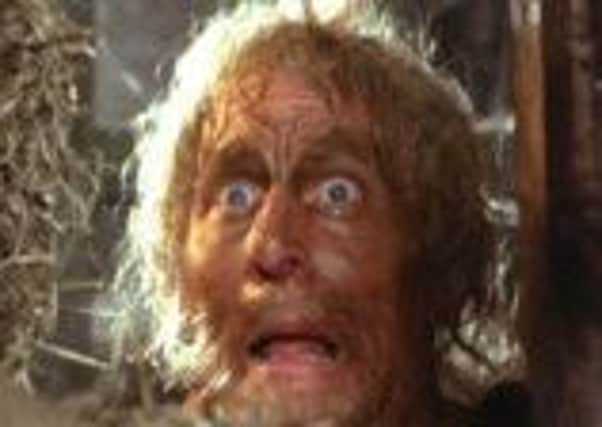Ian McMillan: A question of hairstyles becomes a grey area


I would say things like “Oh, mam, leave it! You’ll never get a side parting to stay in!” and she would grip me like she was holding a steer for branding and grunt with the effort as she dragged the comb across my head and pounded it into submission with the brush.
Then, for a moment, my hair would look neat and tidy. It was a second frozen in time, a posed photograph captioned “Smart Young Man With His Hair In A Proper Style” and then there would be a noise that sounded like “boing” and my hair would stick up like Ken Dodd’s or, as my mother said, ‘“Alfalfa’s”, a 1940s popular entertainment reference that was lost on me.
Advertisement
Hide AdAdvertisement
Hide AdMy mother was sure that neat hair would help you get on in life, that Hair Maketh The Man, that if only you could look presentable you could conquer the words of business and commerce and the arts and anything else you put your Brylcremed hand to.
As a child of the 1960s, my view was the opposite: my heroes had hair like Rasputin or Catweazle. They looked like they’d been dragged through a hedge backwards and they were proud of it. And it didn’t stop them getting on in their chosen fields although I was much more aware of the arty world than the commercial one.
Mind you, those were the days when even newsreaders and weather forecasters had hair that tickled their collars and sideburns that looked as though small woodland creatures could nest in them. It was a time when a neat haircut was considered the opposite of groovy. It was, and I can’t believe we used this word without irony or air-quotation-marks, “square”.
How that has changed, how the proper style has become the Default Barnet Mode as we Hair Historians call it; as austerity bites, the teeth of the comb grow ever sharper. You see lots of blokes my age with shaved heads these days.
Advertisement
Hide AdAdvertisement
Hide AdYears ago, and to a much lesser extent today, the bristly bonce was often a sign of extreme right-wing views and a predisposition to a scrap over a reasoned debate. These days that isn’t the case: the shaved head says ‘I’m ready for business. I’m an entrepreneur and I don’t want to waste time at the barbers because there are deals to be done and people to see and places to go’.
Another aspect of this mid-life hair crisis, this hair-based response to the times we’re in, is the refusal to go grey. I’m happy to be a silver fox but I’m losing count of the number of times I see chaps who, like me, can remember buying early albums by The Jam, but whose hair is as black as black boot polish. It can’t, as they say, be natural.
A decade ago I was walking down a street in South Korea and even in those days my hair was grey and a man came up to me and asked me how long I’d been retired. I was aghast and told him in no uncertain terms that I was a young whippersnapper in my late-40s and there were plenty more years of column-writing and radio-chuntering in me yet. It was his turn to be aghast; apparently round those parts if your hair was grey you were getting the slippers on and settling down in front of the Korean equivalent of Countdown. If you wanted to be seen as young, you had to darken your hair, and darken it now.
Look on a train or a bus next time you’re on one. You’ll see men my age with shaved heads or hair that looks much younger than their necks. Or you might see the ultimate humiliation, the 2013 equivalent of the Old Man’s Quiff from the 1950s, the Middle Aged Man Trying to Look Like Justin Bieber Did Last Year. The hair is piled up like ice cream, except it’s too thin to pile. The fringe is heavy, almost too heavy for the head. It looks like the eyebrows have been trained to defy gravity and meet up with the thinning strands on the scalp. If Shakespeare wrote this haircut it would be a tragedy. If Brian Rix wrote it it would be a farce.
Advertisement
Hide AdAdvertisement
Hide AdIn years to come, when we’ve come out of the other side of this economic swamp, we’ll look back at the haircuts men had and see them as vain (in both senses of the word) attempts to ward off the triple-dip recession with a triple-dip quiff or a polished head that showed off all the fiscal cliffs in your skull or a sculpted hairdo that might win The Turner Prize.
I think I’ll sell my comb. I never use it anyway.